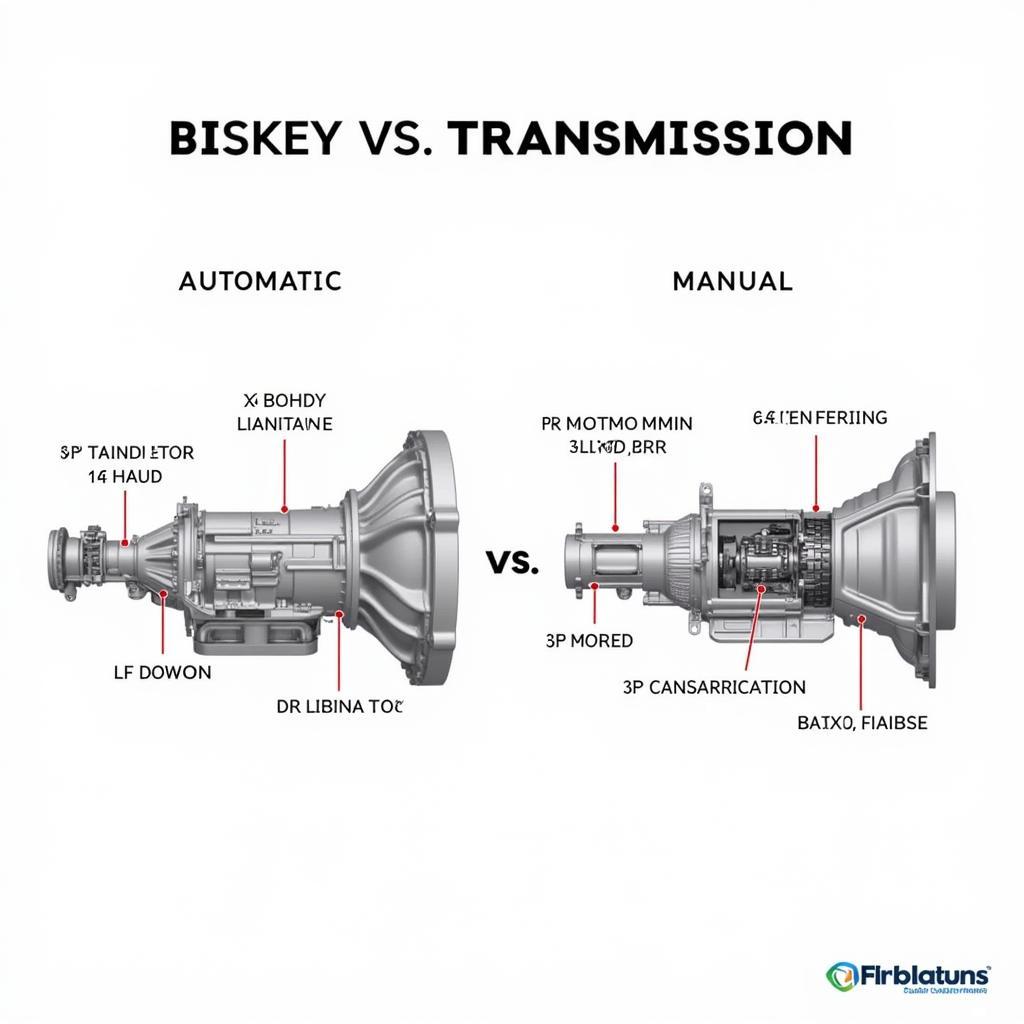How Often Should a Car Transmission Be Serviced?
Maintaining your car’s transmission is crucial for its overall health and longevity. Knowing how often to service your transmission can prevent costly repairs down the road and ensure a smooth, reliable driving experience. But just How Often Should A Car Transmission Be Serviced? The answer isn’t always straightforward and depends on several factors, including your vehicle’s make and model, driving habits, and the type of transmission fluid used.
Understanding your car’s transmission service intervals is essential for preventative maintenance. While some manufacturers recommend servicing your transmission every 30,000 to 60,000 miles, others suggest intervals as high as 100,000 miles. Neglecting these service intervals can lead to a decline in performance, decreased fuel efficiency, and potentially catastrophic transmission failure. You can find out more about general car servicing at what should be included in a car service.
Factors Influencing Transmission Service Intervals
Several factors play a role in determining how often your transmission needs servicing. Here are some key considerations:
- Vehicle Make and Model: Each manufacturer has specific recommendations for transmission service based on the design and engineering of their vehicles. Always consult your owner’s manual for the recommended service schedule.
- Driving Habits: Aggressive driving, frequent towing, or driving in extreme temperatures can put extra stress on your transmission, requiring more frequent servicing.
- Transmission Fluid Type: Different transmission fluids have varying lifespans. Some newer synthetic fluids can last longer than conventional fluids, extending the service intervals.
- Transmission Type: Automatic transmissions generally require more frequent servicing than manual transmissions.
Signs Your Transmission Needs Attention
Beyond scheduled maintenance, there are warning signs that indicate your transmission might need immediate attention. These include:
- Slipping Gears: If your car slips out of gear while driving, it’s a serious sign of transmission trouble.
- Rough Shifting: Difficulty shifting gears or experiencing jerky transitions between gears can indicate a problem with your transmission.
- Delayed Engagement: A noticeable delay between shifting into gear and the transmission engaging can be a warning sign.
- Transmission Fluid Leaks: Check for leaks under your car. Reddish or brownish fluid could indicate a transmission fluid leak.
- Burning Smell: A burning smell coming from your transmission is a sign of overheating and potential damage.
- Strange Noises: Whining, humming, or clunking noises coming from the transmission should be investigated immediately.
Understanding Transmission Service
What exactly happens during a transmission service? A typical service includes:
- Fluid Change: Old transmission fluid is drained and replaced with fresh fluid, ensuring proper lubrication and cooling.
- Filter Replacement: The transmission filter is replaced to remove contaminants and debris that can clog the system.
- Pan Inspection: The transmission pan is inspected for metal shavings or other signs of wear and tear, which can indicate internal problems.
- System Flush (Optional): A transmission flush can remove more of the old fluid and debris than a standard fluid change, but it’s not always recommended for older vehicles.
Extending the Life of Your Transmission
Proactive maintenance can significantly extend the lifespan of your transmission. Here are a few tips:
- Follow the Recommended Service Schedule: Adhere to the manufacturer’s recommended service intervals.
- Check Your Transmission Fluid Regularly: Check the fluid level and condition regularly. Low fluid levels or dirty fluid can lead to problems.
- Avoid Aggressive Driving: Avoid rapid acceleration and hard braking, which can put extra strain on the transmission.
- Tow Within Your Vehicle’s Limits: Don’t exceed your vehicle’s towing capacity, as this can overwork the transmission. You can make an appointment for a check up at do i need appointment for car service.
“Regular transmission maintenance is often overlooked, but it’s a critical aspect of keeping your car running smoothly,” says John Smith, a certified automotive technician with over 20 years of experience. “A little preventative maintenance can save you a lot of money on costly repairs in the long run.”
Manual Transmissions: A Different Approach
Manual transmissions generally require less frequent servicing than automatics. However, they still require periodic fluid changes and inspections. Consult your owner’s manual for the specific recommendations for your vehicle.
“While manual transmissions are generally more robust, they still require attention,” adds Maria Garcia, a senior automotive engineer. “Regular fluid changes and checks can prevent premature wear and tear.” If you need to get your Honda serviced, you can find out more at can i get my car serviced at a honda dealership.
 Automatic vs Manual Transmission Diagram
Automatic vs Manual Transmission Diagram
In conclusion, knowing how often to service your car transmission is crucial for preventing costly repairs and ensuring a smooth and reliable driving experience. By following the manufacturer’s recommendations, paying attention to warning signs, and practicing proactive maintenance, you can extend the life of your transmission and keep your car on the road for years to come.
FAQ
- How do I check my transmission fluid?
- What are the signs of a failing transmission?
- How much does a transmission service cost?
- Can I service my transmission myself?
- What is the difference between a transmission fluid change and a flush?
- How often should I check my transmission fluid level?
- What type of transmission fluid should I use?
You can learn more about car inspections at is there any car inspection service. Also check out this article about what happens during car servicing: what happens when your car is serviced.
For support, contact us via WhatsApp: +1(641)206-8880, Email: [email protected] or visit us at 456 Oak Avenue, Miami, FL 33101, USA. Our customer service team is available 24/7.

